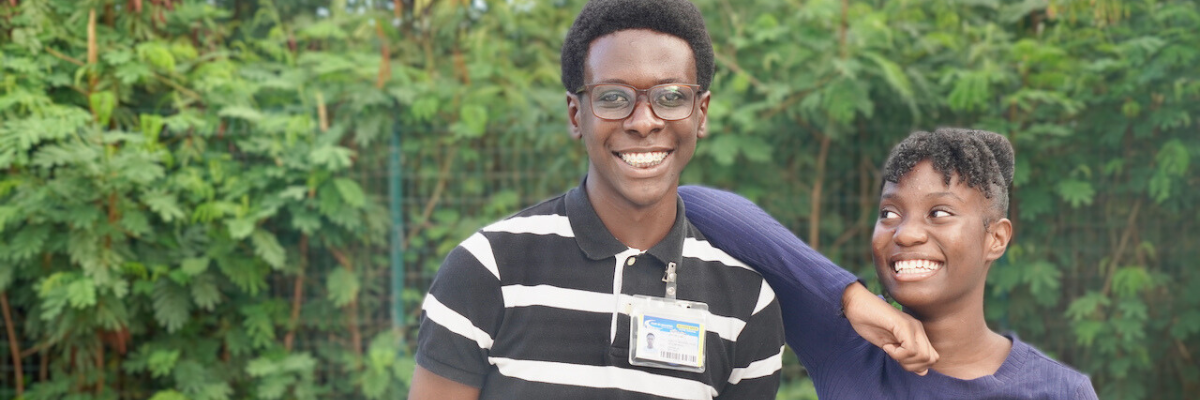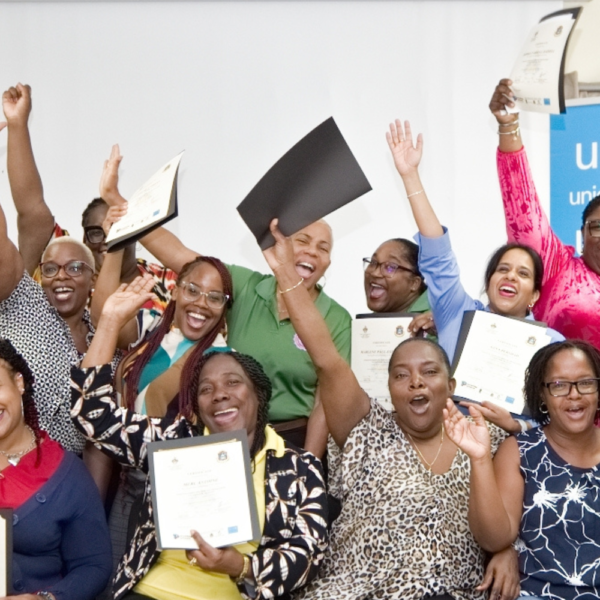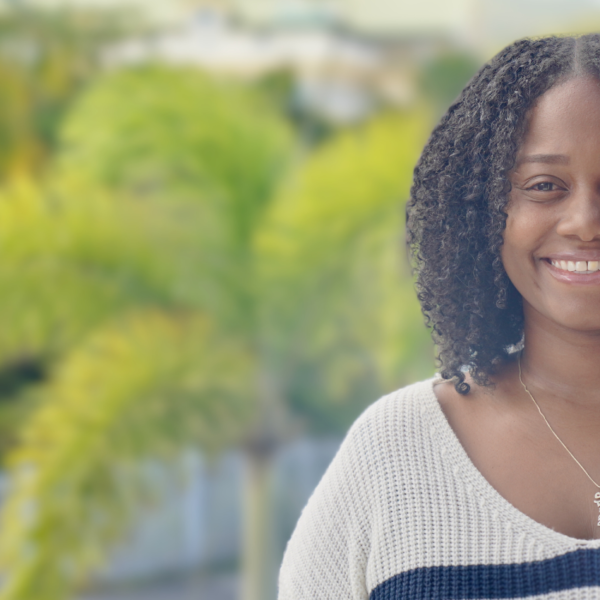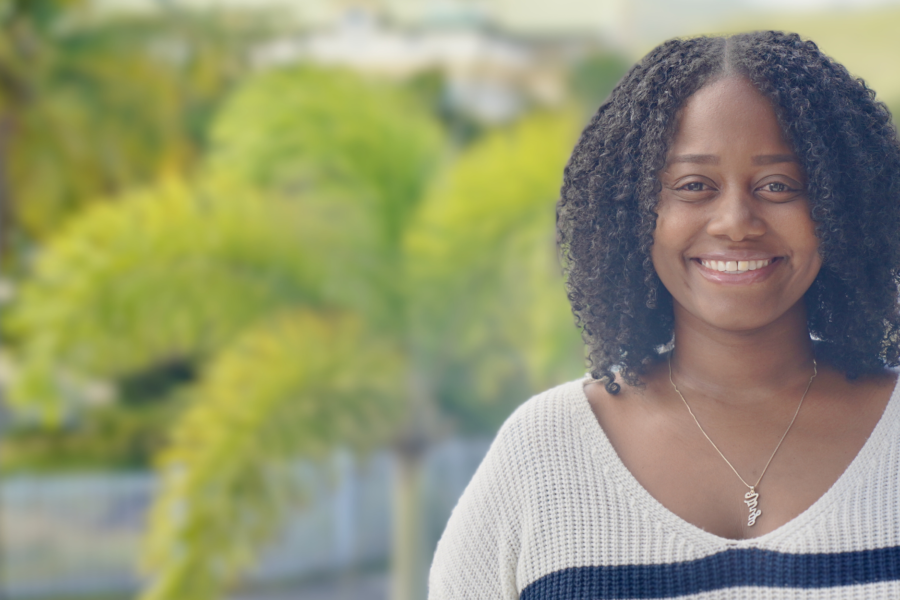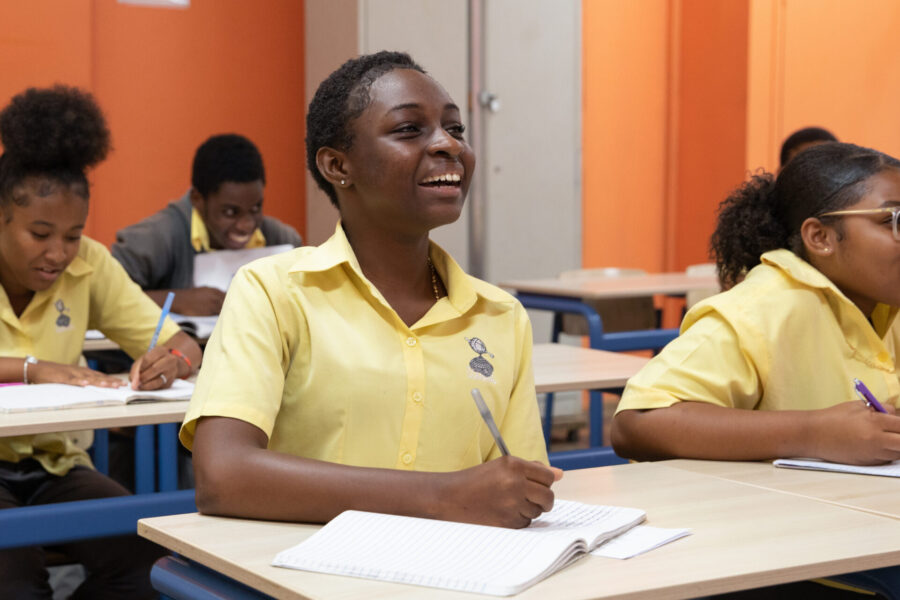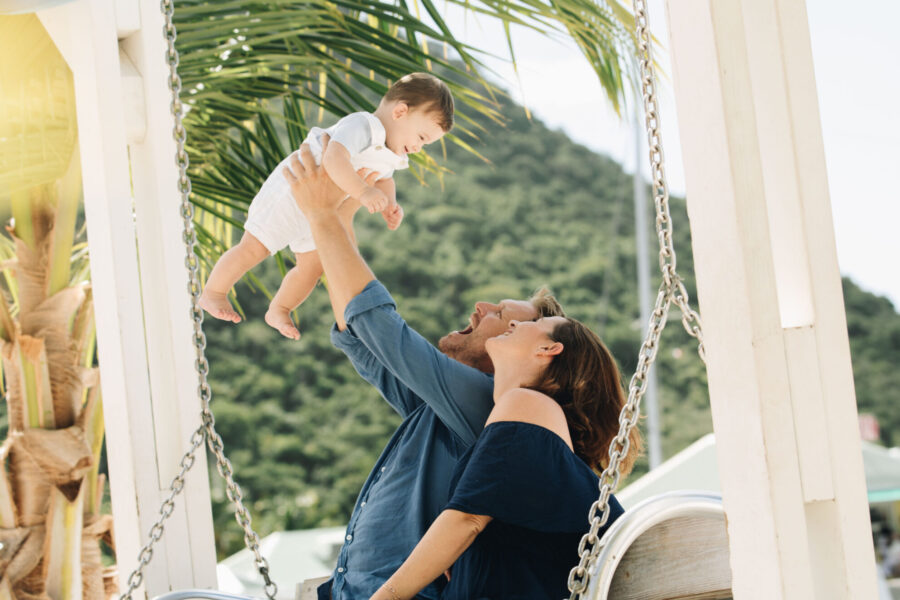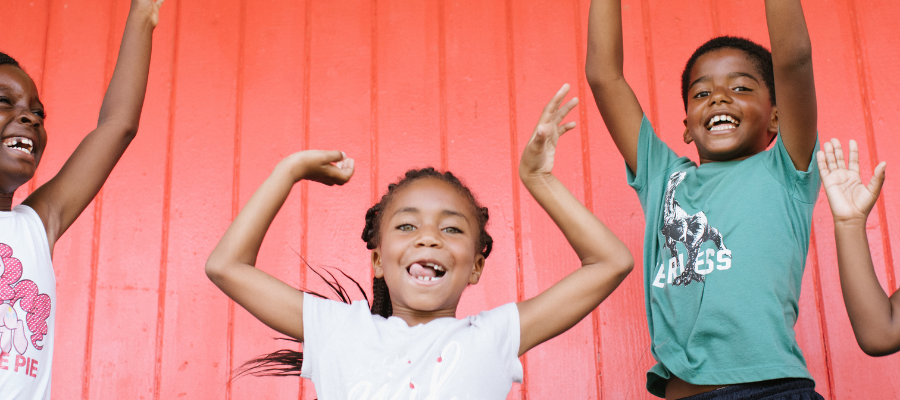Traumatic experiences such as accidents, violence, loss of a loved one, or experiencing a disaster such as a hurricane – can deeply affect teenagers. Discussing these difficult experiences with teenagers helps them process their feelings, understand their reactions, and find healthier ways to cope. However, initiating an open conversation, even with easier topics, with teenagers can be challenging for parents and caregivers. Their communication styles, mood swings, desire for independence, peer influences, privacy concerns, and technological distractions can complicate meaningful dialogues.
So how can and should we talk to teenagers?
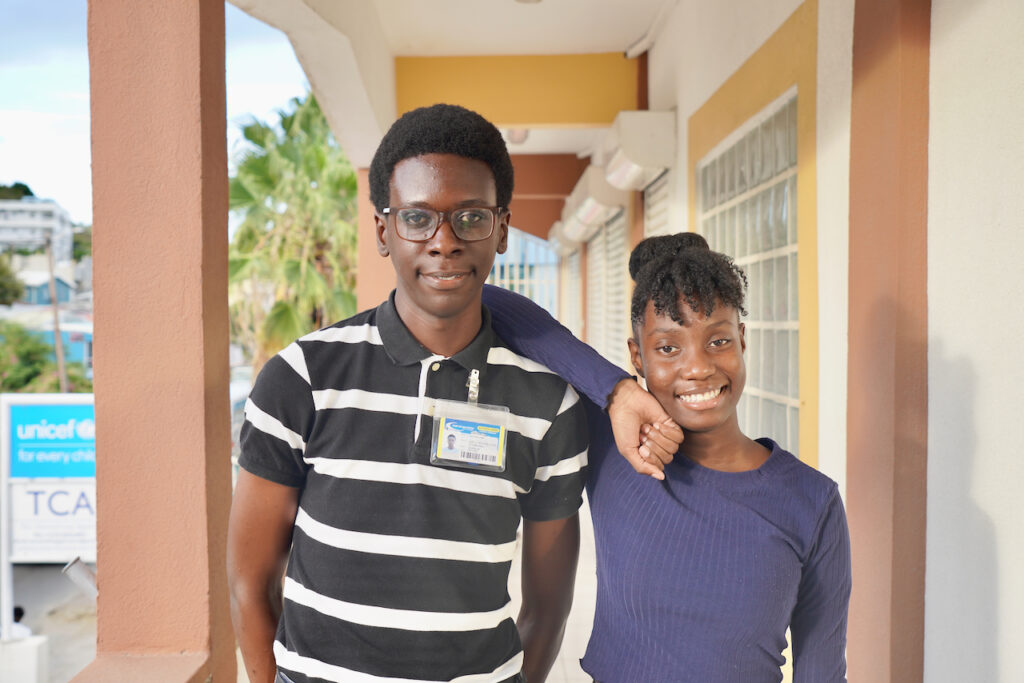
Adio, 16 and Nyla, 13 share their experiences as teenagers to provide insight on how adults should approach teenagers regarding difficult topics in this question-and-answer interview:
Adio and Nyla, tell me a bit about yourselves:
Adio: I am 16 years old and attend St. Dominic High. I enjoy going to church and track and field in my free time. I also like the debate classes at school – last year, we focussed on mental health, which, I think, relates to this interview.
Nyla: I’m 13 years old and attend MAC CSE High School. I love swimming, writing poetry and reading. Mental health, God, and overall happiness are some of the topics that I like writing and reading about.
Since you are both interested in ‘mental health’, what does good mental health mean to you?
Adio: Being comfortable, emotionally stable and in an environment where you are not afraid to be yourself.
Nyla: I think good mental health has a lot to do with the environment you are in. A positive environment for me is a place where I can connect with others, talk about my feelings, and feel safe.
What would you consider a traumatic event?
Nyla: A traumatic event can be if someone bullies you and you become afraid to express yourself. Or abuse at home. I think it would be terrible because this means that the people you look up to might be hurting you.
In the past years, we have gone through some difficult years, including Hurricane Irma and COVID-19. How did you cope with these events?
Adio: I would not describe the hurricane as traumatic, but right after, seeing the whole island shut down with no current or water makes you feel depressed. Also, I need Wi-Fi to survive, ha-ha. During that time, it was nice that many children in my neighbourhood hung out and became close.
Nyla: COVID-19 was a stressful and traumatic experience. We could not physically connect with the outside world, and online schooling was hard.
Adio: Yep… the only thing mildly enjoyable was that it was easy to skip classes. Everything else was horrible. During COVID-19, I only really talked to one person, so it was also weird to go back to school again.
Nyla: We are still feeling the effects. They still spray your hands and check your temperature at school – and there are fewer fun things like social events and school clubs.
Do you talk to your parents when something is bothering you?
Nyla: Yeah, I feel comfortable talking to my mom. It helps that she places herself in my shoes and tries to understand me. Her responses are positive and help me overcome whatever I am worried about.
Adio: It depends on the situation; there are some things I wouldn’t bring up and others that I would.
Nyla: That is true… it depends on the situation.
Would you consider going to a professional such as a teacher or school counsellor to discuss anything difficult?
Nyla: I had a teacher that I knew already, who I would feel comfortable speaking with. But I can’t think of any others.
Adio: I would not go to the counsellor because I would be afraid that they share my business.
Nyla: Yeah, even with some of my friends, I am careful with what I share because I fear they will tell other people.
Adio: Part of that is the fear of being judged for what you share, whether with your friends or adults. I don’t want them to look at me differently.
Can you give a few examples of topics that are difficult to talk about?
Adio: I like to deal with certain things on my own. Sometimes you also don’t feel your parents can help. Also… any topics related to sex can be awkward.
What is needed for adults to more comfortably discuss difficult topics with teens?
Adio: Having a closer relationship with that person. Like already having a bond.
Nyla: I agree!
Adio: You can’t expect someone to share their feelings if you don’t already have that bond.
What is a good way to encourage open conversation with a teenager?
Adio: Don’t force the conversation, and make sure we are in a comfortable, private and safe environment.
Nyla: Patience is key because we don’t always want to talk.
Adio: And when we do have a conversation, you should really listen – and show interest in what we are saying.
What is the right way for an adult to ask a teenager a difficult question?
Adio: It’s not about the number of questions but the way and tone they ask the questions.
Nyla: Timing is also important. We understand why parents want to know details of what is happening in our lives to keep us safe. Still, sometimes questions can feel pushy, especially if we are not ready to share something.
What are some bad ways for adults to react when having a difficult conversation with their children?
Nyla: If your parents get frustrated or angry about a situation without entirely trying to understand your side. It makes you feel like you’re not heard or understood. It would also make me keep my feelings inside the next time.
Adio: Show me that you believe me, and don’t dismiss me. Adults can sometimes diminish feelings or emotions by saying, “You don’t have it as bad as I had.”
Nyla: Or comments like: “You’re being dramatic about this.”
What can adults do to redeem themselves after having a bad reaction to a conversation?
Nyla: Wait until you have cooled off. You can apologize and say: sorry, I was having a bad day. Show your children that you care and are willing to listen and understand.
Adio: We understand that you can sometimes have a bad day and do not know how to react. Adults sometimes underestimate us.

